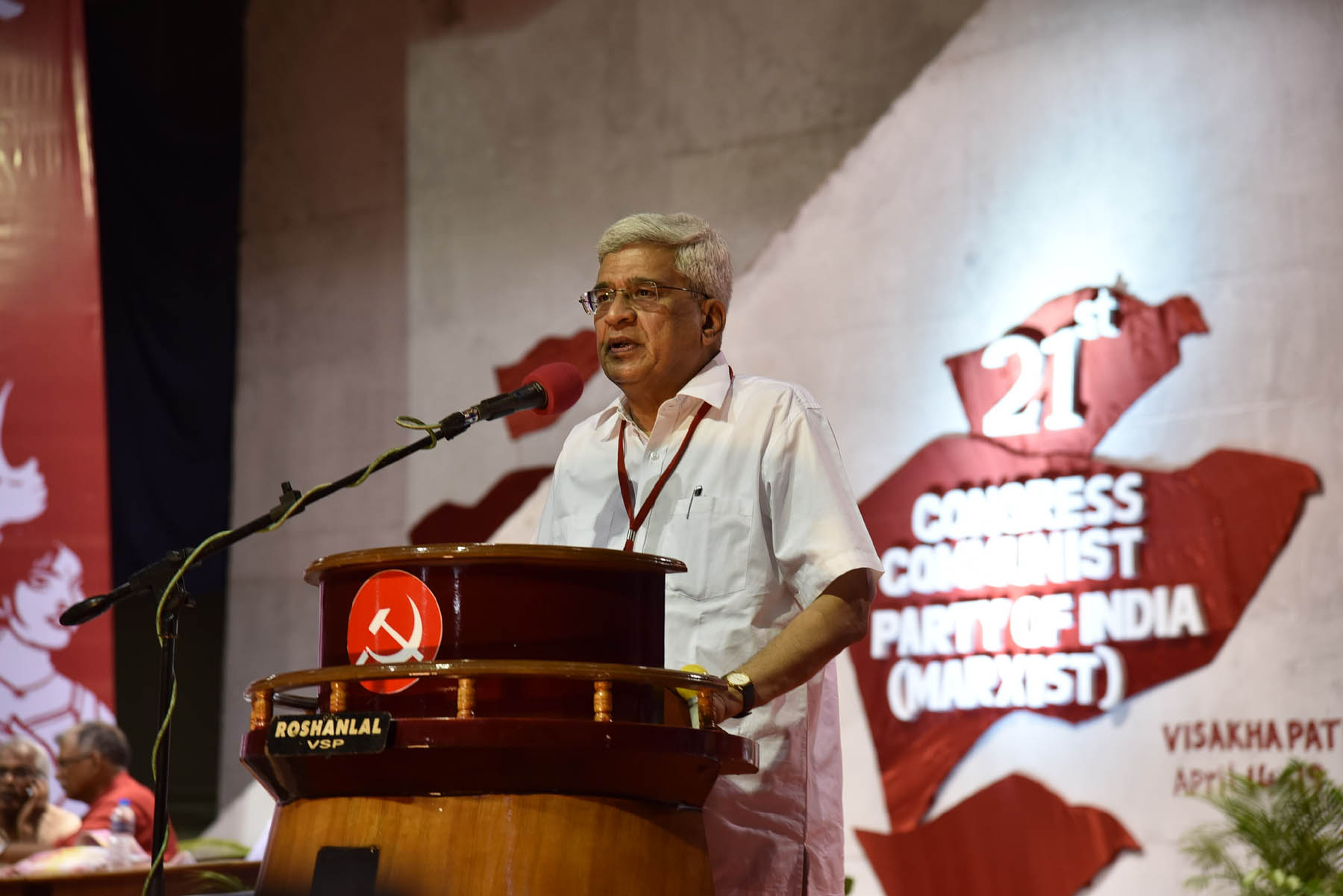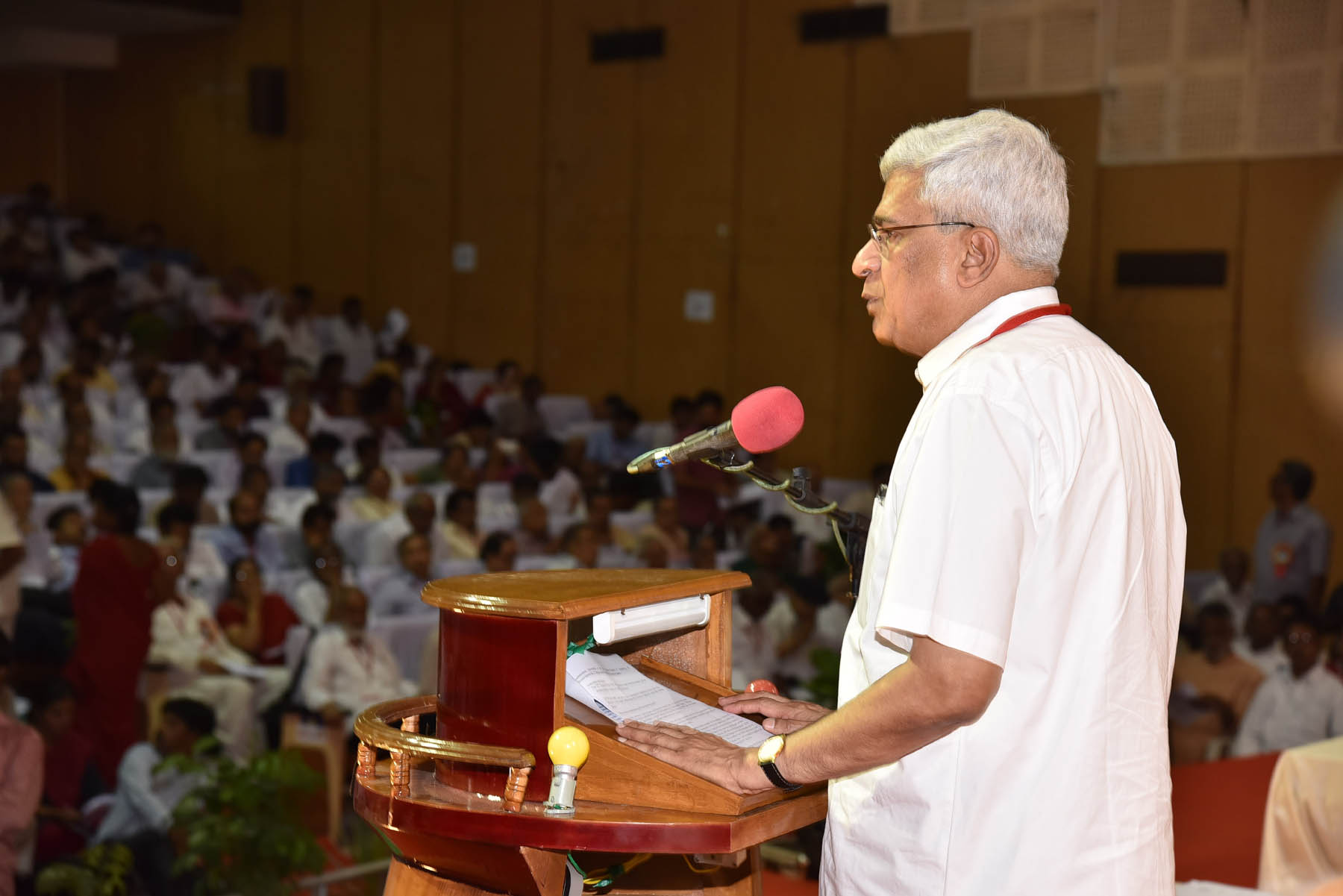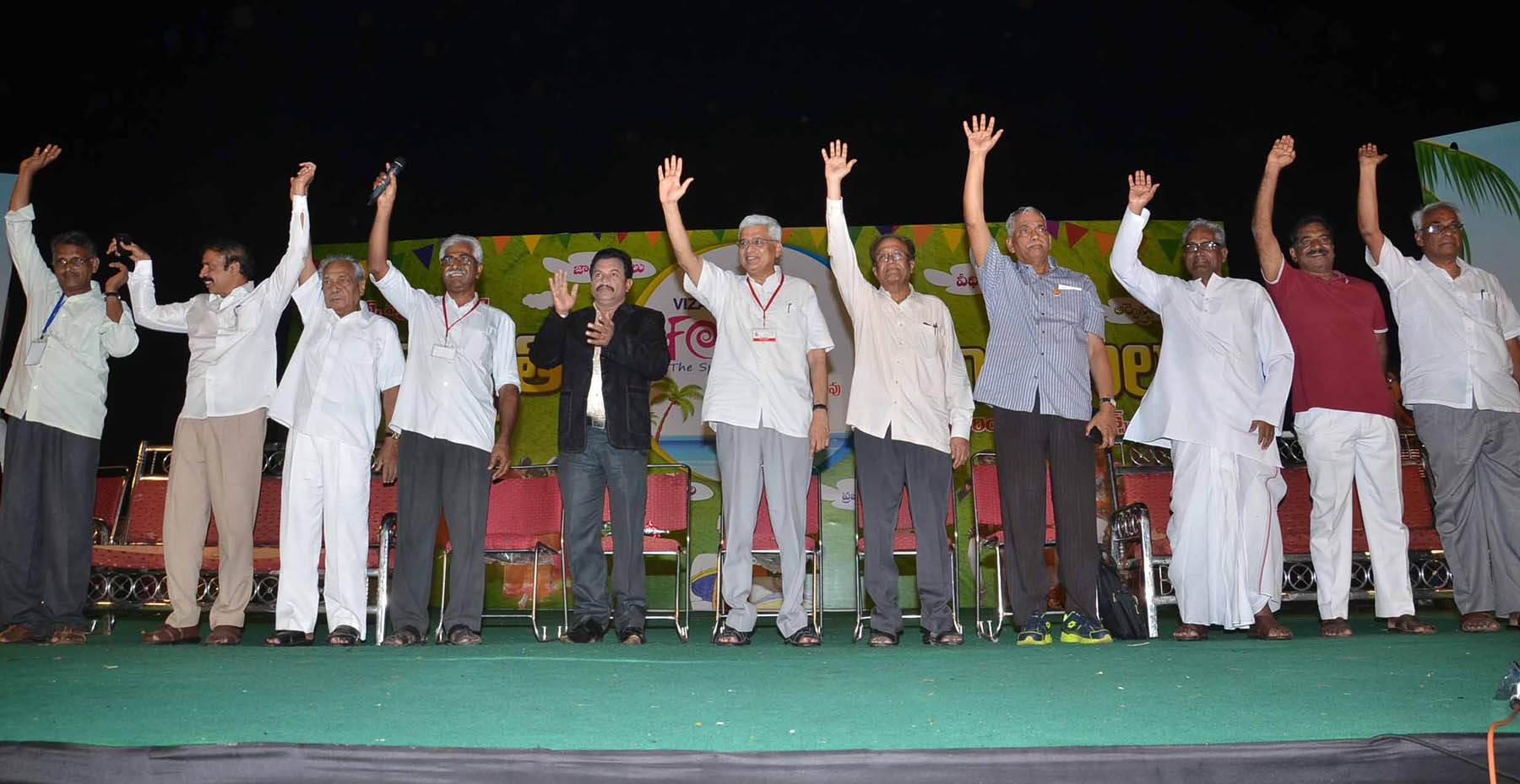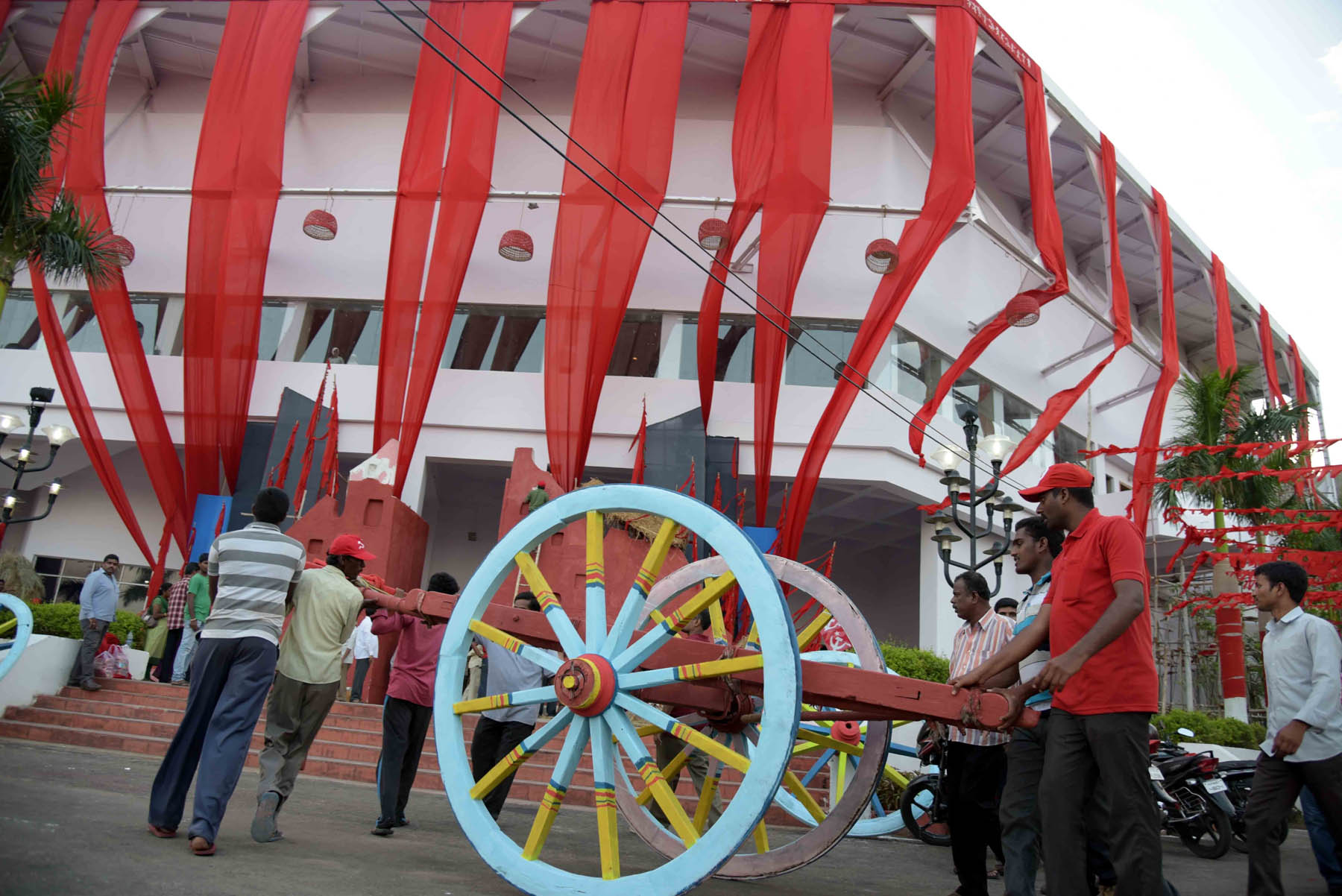Headlines
CPI-M conclave seeks to strengthen party, forge Left unity
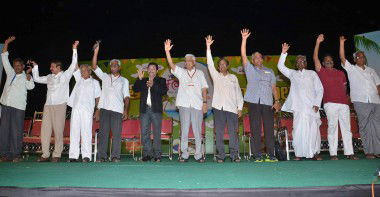
Visakhapatnam, April 14
The Communist Party of India-Marxist began its conclave here on Tuesday with a call by its outgoing general secretary Prakash Karat to build and strengthen the party by overcoming the reverses suffered in recent years.
In his inaugural address at the 21st Congress of the CPI-M, he also called for widening and strengthening the Left unity to counter what he called the right-wing offensive.
\"At the present juncture it is absolutely vital to build and expand independent strength of CPI-M and the Left. We have to overcome the reverses suffered by CPI-M and the Left in recent period, particularly in West Bengal,\" he said.
He underlined the need to bring all the Left parties and groups on a broad platform and establish coordination between Left-led mass organisations.
\"It is by forging strong Left unity that we can rally all other democratic forces and go forward towards building Left and democratic alternative,\" he said.
Karat, who is set to be succeeded by Sitaram Yechuri, said the conclave would send out a clear and categorical message to people that the only alternative to the neo-liberal, corrupt and communal order is a Left and democratic alternative.
Communist Party of India (CPI) general secretary S. Sudhakar Reddy and representatives from seven other Left parties attended the inaugural session.
He exuded confidence that the 21st Congress would be a landmark in providing a new direction to the party.
The six-day Congress, being attended by delegates from across the country, will focus on the central theme of how to counter the right-wing offensive by organizing struggles and sustain movements of working class, peasantry, agriculture workers and other oppressed section of society.
Karat, whose 10-year term as general secretary saw the party\'s strength in the Lok Sabha fall from its peak of 60 to just nine, said the party would actively take up the social issues and fight for rights of women, tribals, dalits and the minorities.
Stating that the conclave is being held at a time when national political situation presents a variety of challenges, he said for last nearly one year \"we have witnessed the unfolding of right wing offensive in the country which spans the economic political social and cultural spheres\".
\"We have a political party, BJP (Bharatiya Janata Party), in power at the Centre which is nothing but a political extension of RSS. Thus, the Modi government is a joint enterprise of BJP and RSS with the parent partner holding majority stakes in this joint venture,\" he said.
The CPI-M leader said that in a short space of 10 months, the Modi government has taken most steps to transfer resources of the country to big corporate and foreign capital that no other previous government had done.
Karat said the right-wing agenda was reflected in the foreign policy of the Modi government, which actively seeks to ally with the US imperialism.
He accused the Modi government of surrendering to US pressures to open up the country\'s economy further to foreign capital.
He said the BJP won the Lok Sabha elections and the Modi government was propelled into office by twin forces of big bourgeois corporate support and exertion of RSS-led Hindutva forces.
\"It is this backing of the big business which accounts for aggressive pursuit of neo-liberal policies of the Modi government,\" he said.
\"Who benefits from Modi\'s \'acche din\' is clear from the fact that big capitalist Gautam Adani has increased his wealth by Rs.25,000 crore in a span of one year between 2013 and 2014.\"
Karat alleged that the Modi government has opened way for Hindutva forces to advance their communal agenda. \"What BJP and RSS are set to do is to demolish the secular democratic foundations of the Indian Constitution.\"
He said the RSS was dictating agenda for educational system, research and cultural institutions. \"There is a vicious campaign against the minorities. They face threat of reconversion and attacks on their places of worship like churches, violation of their food and cultural rights, and acts such as banning of beef,\" he added.
He claimed that within a short span of time, popular discontent is growing with various sections of working people coming out in struggles to defend their livelihood and rights.
He noted that there is a widespread movement building up against the land acquisition ordinance while all central trade unions are unitedly struggling against the proposed changes in the labour laws.
The Communist Party of India-Marxist began its conclave here on Tuesday with a call by its outgoing general secretary Prakash Karat to build and strengthen the party by overcoming the reverses suffered in recent years.
In his inaugural address at the 21st Congress of the CPI-M, he also called for widening and strengthening the Left unity to counter what he called the right-wing offensive.
\"At the present juncture it is absolutely vital to build and expand independent strength of CPI-M and the Left. We have to overcome the reverses suffered by CPI-M and the Left in recent period, particularly in West Bengal,\" he said.
He underlined the need to bring all the Left parties and groups on a broad platform and establish coordination between Left-led mass organisations.
\"It is by forging strong Left unity that we can rally all other democratic forces and go forward towards building Left and democratic alternative,\" he said.
Karat, who is set to be succeeded by Sitaram Yechuri, said the conclave would send out a clear and categorical message to people that the only alternative to the neo-liberal, corrupt and communal order is a Left and democratic alternative.
Communist Party of India (CPI) general secretary S. Sudhakar Reddy and representatives from seven other Left parties attended the inaugural session.
He exuded confidence that the 21st Congress would be a landmark in providing a new direction to the party.
The six-day Congress, being attended by delegates from across the country, will focus on the central theme of how to counter the right-wing offensive by organizing struggles and sustain movements of working class, peasantry, agriculture workers and other oppressed section of society.
Karat, whose 10-year term as general secretary saw the party\'s strength in the Lok Sabha fall from its peak of 60 to just nine, said the party would actively take up the social issues and fight for rights of women, tribals, dalits and the minorities.
Stating that the conclave is being held at a time when national political situation presents a variety of challenges, he said for last nearly one year \"we have witnessed the unfolding of right wing offensive in the country which spans the economic political social and cultural spheres\".
\"We have a political party, BJP (Bharatiya Janata Party), in power at the Centre which is nothing but a political extension of RSS. Thus, the Modi government is a joint enterprise of BJP and RSS with the parent partner holding majority stakes in this joint venture,\" he said.
The CPI-M leader said that in a short space of 10 months, the Modi government has taken most steps to transfer resources of the country to big corporate and foreign capital that no other previous government had done.
Karat said the right-wing agenda was reflected in the foreign policy of the Modi government, which actively seeks to ally with the US imperialism.
He accused the Modi government of surrendering to US pressures to open up the country\'s economy further to foreign capital.
He said the BJP won the Lok Sabha elections and the Modi government was propelled into office by twin forces of big bourgeois corporate support and exertion of RSS-led Hindutva forces.
\"It is this backing of the big business which accounts for aggressive pursuit of neo-liberal policies of the Modi government,\" he said.
\"Who benefits from Modi\'s \'acche din\' is clear from the fact that big capitalist Gautam Adani has increased his wealth by Rs.25,000 crore in a span of one year between 2013 and 2014.\"
Karat alleged that the Modi government has opened way for Hindutva forces to advance their communal agenda. \"What BJP and RSS are set to do is to demolish the secular democratic foundations of the Indian Constitution.\"
He said the RSS was dictating agenda for educational system, research and cultural institutions. \"There is a vicious campaign against the minorities. They face threat of reconversion and attacks on their places of worship like churches, violation of their food and cultural rights, and acts such as banning of beef,\" he added.
He claimed that within a short span of time, popular discontent is growing with various sections of working people coming out in struggles to defend their livelihood and rights.
He noted that there is a widespread movement building up against the land acquisition ordinance while all central trade unions are unitedly struggling against the proposed changes in the labour laws.
